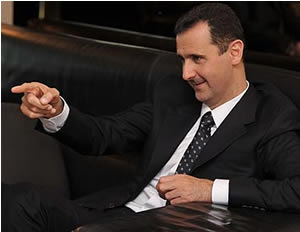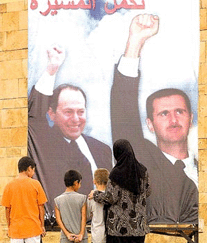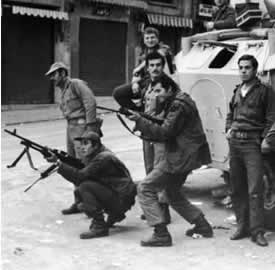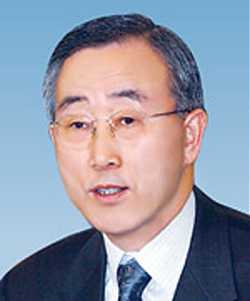In an article in the UAE English-language daily The National, titled "We Need a Nelson Mandela Who Knows When To Go," Sultan Al Qassemi, whom the paper notes is a non-resident fellow at the Dubai School of Government, writes about the dearth of democratic practices in the Arab world, particularly the absence of presidential term limits and other restraints on absolute power. He asks, "Where is the Arab world's Nelson Mandela? He too was hugely popular when his second term expired, and yet he followed the constitution to the letter -- stepping down and allowing others the opportunity to run and be elected."
The following is the article:"Almost Every Leader in the Region Seems to Find a Good Reason to Amend Their National Constitutions As and When They See Fit"
"There are 22 countries in the Arab world, and not a single one is a true constitutional democracy. Almost every leader in the region seems to find a good reason to amend their national constitutions as and when they see fit: Apparently there is always a 'special case.'
"In Syria, for example, Dr Bashar Al-Assad was 34 years old when his father, President Hafez Al-Assad, passed away in 2000. Inconveniently, the constitution stipulated that only persons above the age of 40 could become president. Lawmakers and parliamentarians instantly came together and decided to amend the constitution to allow a 34-year-old to assume the office. This is a country where judicial, economic and political reform may take years to become a reality.
"One state that I had high hopes for was Algeria. I always admired this country that fought the French for freedom and gave a million lives for their liberty. When Abdelaziz Bouteflika was elected president of Algeria in 1999, I thought it was the beginning of the end of dictatorships in the region; this former fighter in the Front de Liberation Nationale would value his country's struggle and not try to perpetuate his term of office, as has happened in some failed states in the region.
"But I was proved wrong. Last November Mr Bouteflika's Council of Ministers announced a constitutional 'revision' removing the presidential two-term limit. In February, following more than three years of uncertainty over his health after several lengthy periods in hospital, Mr Bouteflika announced that he felt fit enough to run for a third term. And in April it was announced that he had won the presidential election, and would serve for a third five-year term.
"Yemen is a case on its own. I detailed the ills that have befallen the impoverished state in an article in The National a year ago, entitled 'Can a weed really destroy a country?' Sadly, matters have only grown worse since then. The country's lifetime president, Ali Abdullah Saleh, in power since 1978, repeatedly states that he is seeking a peaceful transfer of power to the next president, but always 'succumbs to the will of the people' by extending his term.
"In the Palestinian territories, Hamas won parliamentary elections in January 2006 and now controls Gaza, but fails to comprehend the basics of governance. For instance, Article 38 of the Palestinian constitution states that any accused person 'is innocent until proven guilty by a fair trial wherein he shall be afforded the guarantees of self-defense.' Hamas is known for its summary executions of individuals it suspects of being spies for Israel.
"Meanwhile the current Palestinian president, Mahmoud Abbas, whose constitutional term expired on January 9, simply stayed in office and quietly extended his term by a year without much media scrutiny. And the most notorious case of amending an Arab state's constitution is possibly that of Lebanon in 2005, when President Emile Lahoud's term was extended by Syria."
"However... Two Individuals Stand Out" -- The Leaders of Kuwait and Morocco
"However, all is not lost. Two individuals stand out, in my opinion. Sheikh Abdullah Al Salem Al Sabah, who introduced the Kuwaiti constitution in 1962 and after whom the current parliament hall is named, is the father of the modern democratic movement in the monarchies of the Gulf. He also introduced parliamentary elections in the midst of the backwardness that came with the Egyptian president Gamal Abdel Nasser's encouragement of replacing kings with dictators in the region.
"And the King of Morocco, Mohammed VI, who ascended to the throne 10 years ago this week, introduced reforms allowing for a truth and reconciliation commission that presented the Arab world for the first time with the most moving accounts of civilian torture and abuse during the rule of his father, King Hassan II. These accounts were recorded and broadcast live on television. Because of the truth and reconciliation committee, Morocco is a stronger nation, not a weaker entity."
"Where is the Arab World's Nelson Mandela... [Who] Followed the Constitution to the Letter [?]"
"Many leaders in the region have an opportunity to leave behind a better legacy than the one they inherited when they assumed office. Regardless of a person's popularity, he or she must respect the sacred document that governs the state. Where is the Arab world's Nelson Mandela? He too was hugely popular when his second term expired, and yet he followed the constitution to the letter -- stepping down and allowing others the opportunity to run and be elected.
"We desperately need a visionary leader in the Arab world, monarch or republican, who steps aside and oversees in his lifetime a peaceful democratic transfer of power. That would truly be a 'special case' that we could all be proud of." |
 Hereditary President-for-Life Bashir
Hereditary President-for-Life Bashir 
 The Lebanese parliament failed Tuesday for the tenth consecutive time to elect a new president to replace incumbent president Michel Suleiman because of lack of the required quorum.
The Lebanese parliament failed Tuesday for the tenth consecutive time to elect a new president to replace incumbent president Michel Suleiman because of lack of the required quorum. It is generally assumed that states, like individuals, benefit from their mistakes, and evaluate their experiences, especially when dealing with particular issues.
It is generally assumed that states, like individuals, benefit from their mistakes, and evaluate their experiences, especially when dealing with particular issues.  (Xinhua) -- Lebanese President Michel Suleiman arrived in Damascus on Wednesday for a groundbreaking visit to Syria.
(Xinhua) -- Lebanese President Michel Suleiman arrived in Damascus on Wednesday for a groundbreaking visit to Syria.  (Xinhua) -- At least eight people were killed and 40 wounded during three days of sectarian fighting in Beirut, Lebanese security sources said on Friday. The sources, who spoke on condition of anonymity, told Xinhua that among the 40 injured, two were badly injured and their lives could suffer menace.
(Xinhua) -- At least eight people were killed and 40 wounded during three days of sectarian fighting in Beirut, Lebanese security sources said on Friday. The sources, who spoke on condition of anonymity, told Xinhua that among the 40 injured, two were badly injured and their lives could suffer menace.  Secretary-General Ban Ki-moon called Monday for immediate presidential elections in Lebanon without foreign interference and told Syria and Iran they must support the disarmament of Hezbollah's well-armed militia.
Secretary-General Ban Ki-moon called Monday for immediate presidential elections in Lebanon without foreign interference and told Syria and Iran they must support the disarmament of Hezbollah's well-armed militia.